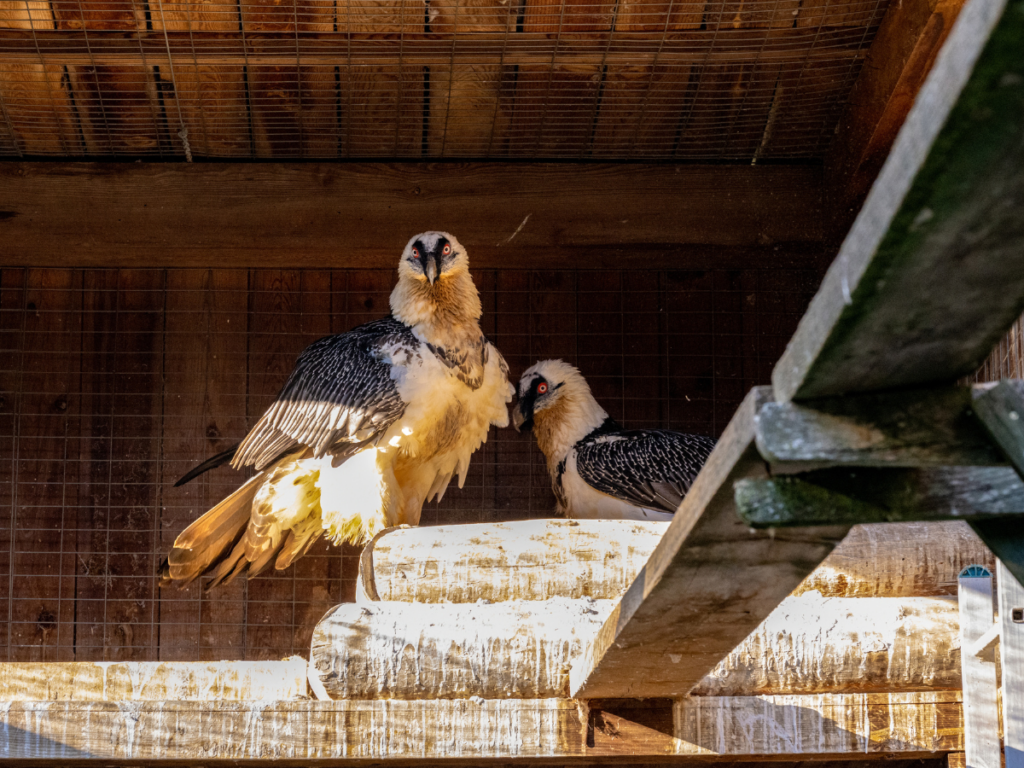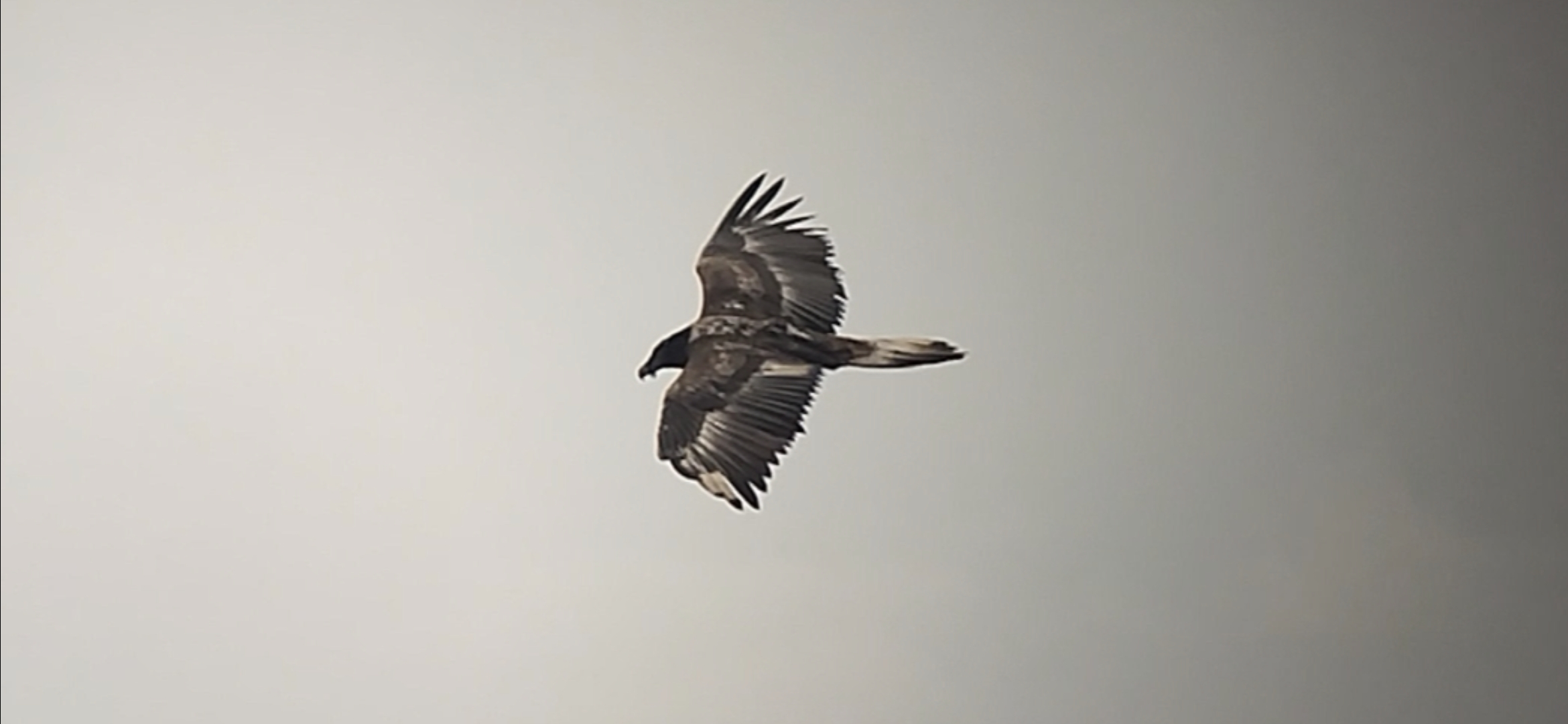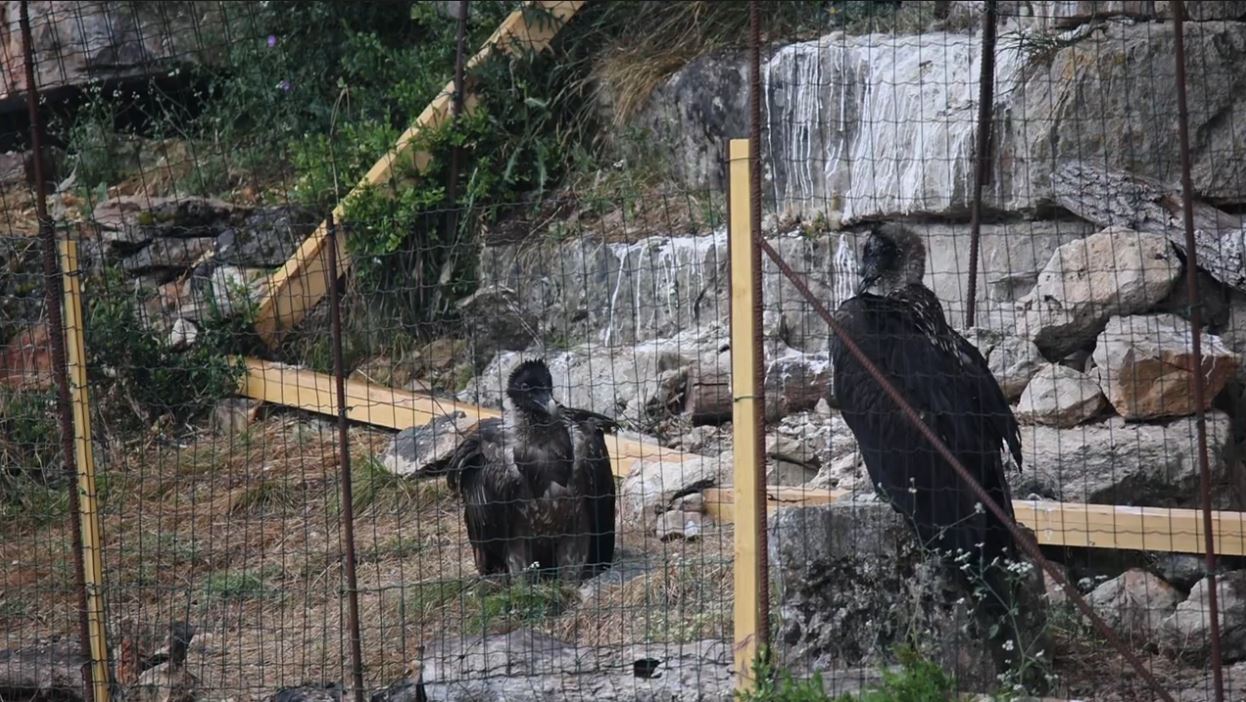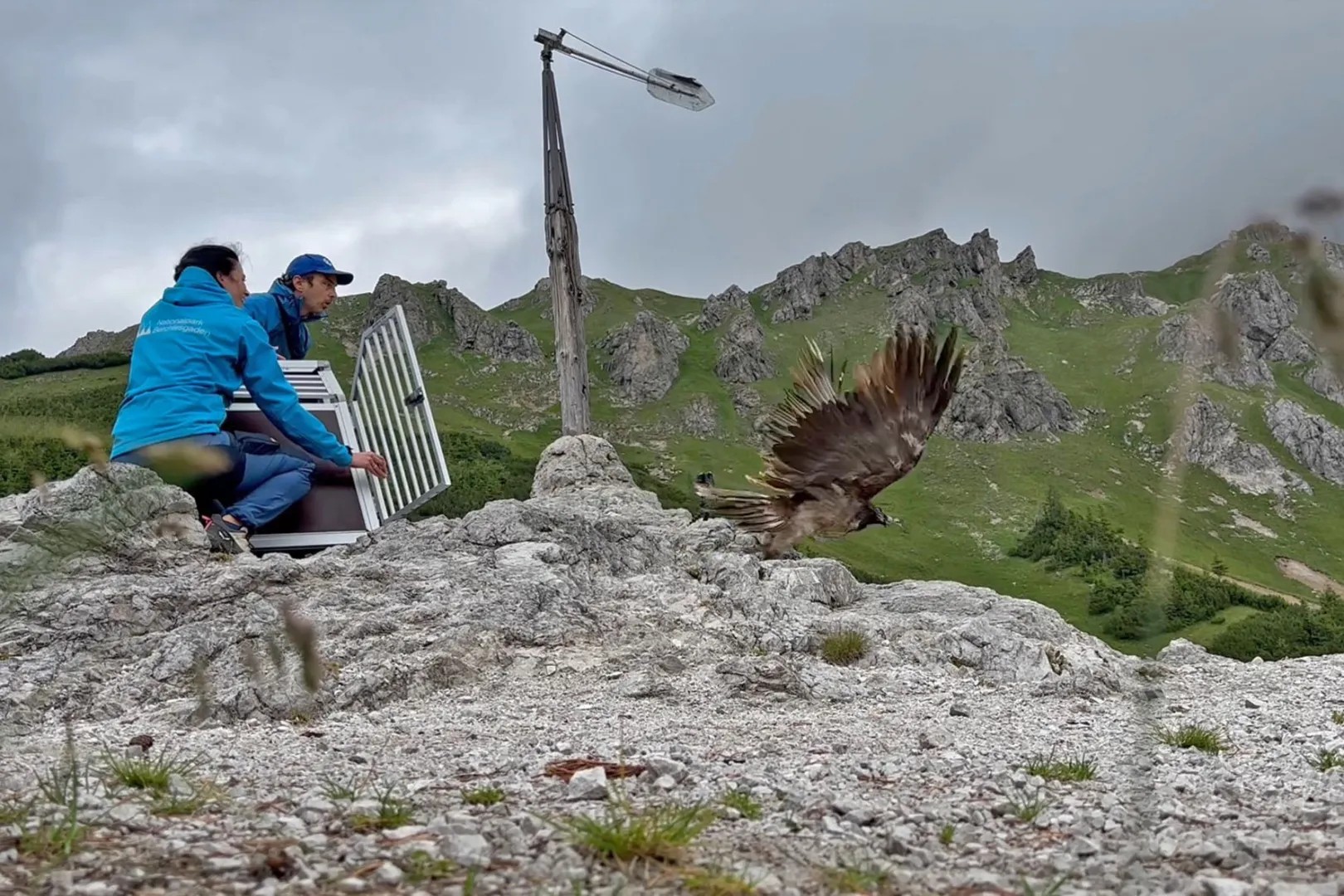The mosquito-transmitted West Nile Virus (WNV) poses a growing threat to captive Bearded Vultures (Gypaetus barbatus) in Europe. Though often not directly deadly, the impact of the virus on the Bearded Vultures’ immune system causes chronic health issues that can ultimately be fatal to wild and captive birds. Tackling the threat of West Nile Virus within the Bearded Vultures Captive Breeding Network (Bearded Vulture EEP) involves the collective effort of many partners, research centres and captive-breeding centres. Currently, the effectiveness of a vaccine against the West Nile Virus is being studied, led by Ursula Höfle from IREC (Institute for Game and Wildlife Research).

West Nile Virus, a threat to captive Bearded Vultures in Europe
The flavivirus WNV originates from Africa (first detected in the West Nile region hence its name) and is transmitted by different mosquito species, especially in the Culex genus, abundant in Africa and Europe. Increasing temperature shifts related to climate change can actively contribute to its incidence. The disease coincides with the highest peak of mosquitos during the hot summer months and can affect both wild and captive birds. Birds in captivity are, however, particularly susceptible to WNV infection.
Once infected, Bearded Vultures do not exhibit strong symptoms but get weaker and, thus, become more vulnerable to other infections like aspergillosis, which can eventually lead to death. In 2008, the first captive Bearded Vulture infected with the WNV died of a secondary cause, and many birds from the Bearded Vulture Captive Breeding Network, coordinated by the Vulture Conservation Foundation (VCF) on behalf of EAZA’s EEP, tested positive but never became sick or died. In 2017, though, there were cases of WNV-related deaths.
When a new disease appears, it takes a certain amount of time for the host to adapt to the pathogen and vice versa. Those individuals that survive the new pathogen are responsible for the evolution of the species and increase the species’ chances of survival.
“But when it comes to endangered species, we cannot afford this adaptation time between pathogen and host. As we do not have many individuals, unusually high losses could accelerate the extinction, as demographically the species in danger cannot withstand such pressure,”
says Àlex Llopis, Veterinary and VCF Vultures Captive Breeding Manager.
Tackling the threat of West Nile Virus
Since 2020, there has been a Passive Surveillance System (Sistema de Vigilancia Passiva) at the Bearded Vulture Captive Breeding Centre of Guadalentín, the centre that breeds the most Bearded Vulture in the network, currently managed by the VCF under an agreement with Junta de Andalucía. It is a joint initiative by the Centro de Análisis y Diagnóstico (CAD) and the Vulture Conservation Programme of the Junta de Andalucía to monitor the long-term incidence of the West Nile Virus in vulture populations. Three unreleasable Griffon Vultures are in Guadalentín to act as sentinels and help detect the virus.
An experimental vaccine trial is ongoing within the Bearded Vulture EEP, led by Ursula Höfle from the Health and Biotechnology (SaBio) Research Group at IREC (Institute for Game and Wildlife Research). The first vaccination tests on Bearded Vultures against the West Nile Virus started in 2021, and after two boosts, both adults showed a solid immune reaction. In 2022, a second test was done at the Vallcalent breeding centre, with 14 birds vaccinated, each vaccinated three times. No adverse reactions were seen among the vaccinated Bearded Vultures, and the breeding season was not affected. Generally, vultures produced antibodies, and the vaccine boosted the immune system in individuals with previous exposure to the virus. It was also noted that juvenile birds had a lower response to the vaccine. So far, only some individuals have been included in the study, and the results are inconclusive. Researchers aim to include a higher number of Bearded Vultures from the Bearded Vulture EEP, covering a more diverse age range.
The importance of keeping captive Bearded Vultures safe
All fledglings that the Bearded Vulture EEP strives to produce yearly are fundamental for reintroduction and restocking projects ongoing in Europe and for safeguarding their important genetic heritage. Any loss of captive Bearded Vulture counts and can hinder the ongoing conservation efforts over the last five decades.
The Bearded Vulture captive breeding season 2022/2023 has been the most successful ever, with a record number of eggs laid and chicks hatched, thanks to the many Zoos and private centres within the Bearded Vulture EEP. Bearded Vultures are a long-lived species that achieve sexual maturity by the age of 5-7 years. Unexperienced pairs often fail their first breeding attempts, which adds to the difficulty of establishing stable and viable populations of Bearded Vultures back to where they were extinct or are declining.

In the wild, when two eggs hatch, only one fledgling survives, as the species is known for its innate behaviour of attacking the younger siblings. Known as cainism, the behaviour is also observed in other birds of prey when food shortages exist. For Bearded Vultures, though, it seems to be an instinctive evolutionary condition that also exists when there is no food shortage.
The Vulture Conservation Foundation and many partners across the Bearded Vulture EEP are firmly committed to tackling the threat of the West Nile Virus. Sign up for our newsletter to get the latest updates about the ongoing vaccination study.




